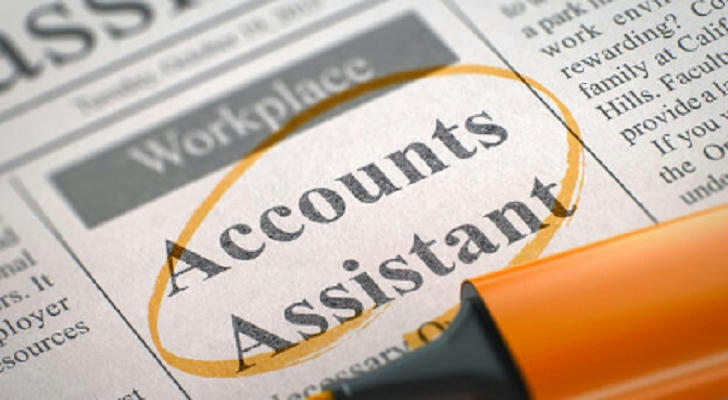Accounting Assistants Are in Demand—Here’s How to Start Your Career in 2025
Ever wonder who helps keep businesses financially organized behind the scenes? While accountants and CFOs might make the big financial decisions, it’s often Accounting Assistants who do the essential day-to-day work that keeps the books balanced, bills paid, and records accurate.
In a world increasingly driven by data, compliance, and cost-efficiency, Accounting Assistants play a crucial role in industries of all types—from tech startups to hospitals, nonprofits to government agencies.
Whether you’re a high school graduate considering career options, a working adult thinking about a career change, or someone who enjoys structure and precision, this article breaks down the career of an Accounting Assistant—what it is, where it's going, and how you can get started.

What Does an Accounting Assistant Do?
Accounting Assistants provide administrative and clerical support to accountants or finance teams. They don’t usually make high-level decisions, but they ensure that financial records are correct, transactions are documented, and everything is running smoothly.
Common responsibilities include:
Entering invoices and processing payments
Assisting with payroll processing
Reconciling bank statements
Updating financial databases and spreadsheets
Preparing basic financial reports
Supporting audits and tax preparation
Managing accounts payable (money going out) and accounts receivable (money coming in)
In small businesses, Accounting Assistants might wear many hats. In large corporations, they may specialize in a specific area like billing or bookkeeping.
Accuracy, attention to detail, and trustworthiness are essential traits in this role.
Industry Snapshot: Where the Jobs Are
Accounting is one of the most stable and necessary fields in the U.S. economy—and that includes support roles like Accounting Assistants.
According to the U.S. Bureau of Labor Statistics (BLS):
There were approximately 1.6 million jobs in bookkeeping, accounting, and auditing clerical support roles in 2022.
While automation is changing how routine tasks are done, demand remains strong for skilled, tech-savvy assistants who can use tools like QuickBooks, Excel, and enterprise software (like SAP or Oracle).
Healthcare, real estate, retail, manufacturing, and financial services are among the top industries hiring accounting support professionals.
As businesses grow and government regulations increase, there’s a continuous need for accurate financial documentation and compliance.
Career Outlook: Where Can This Job Take You?
An Accounting Assistant role can be a launchpad to a long-term career in finance or accounting. Many professionals start here and work their way up.
Potential career growth includes:
Staff Accountant
Payroll Specialist
Billing Coordinator
Accounts Payable/Receivable Specialist
Tax Preparer
Financial Analyst (with additional education)
With experience and/or certification, you can move into senior accounting roles or even pursue a CPA (Certified Public Accountant) license later.
How to Become an Accounting Assistant
You don’t need a four-year degree to become an Accounting Assistant—but you do need a solid understanding of financial basics, math skills, computer literacy, and attention to detail.
Step 1: Education
High School Diploma or GED is the minimum requirement.
Some employers prefer candidates with an associate degree in accounting, finance, or business.
Step 2: Training Programs
There are many short-term training programs—both in-person and online—that focus on accounting principles, bookkeeping, payroll systems, and accounting software.
Examples include:
Community Colleges: Offer accounting assistant or bookkeeping certificates (6–12 months)
Online Platforms:
Coursera: Bookkeeping for Beginners, Accounting Fundamentals
edX: Introduction to Financial Accounting
LinkedIn Learning: QuickBooks and Excel training
Udemy: Real-world accounting training at your own pace
Certification: Boosting Your Credibility
While certification is not always required, it can help you stand out and command more responsibility or better jobs.
Common certifications for Accounting Assistants include:
| Certification | Organization | Ideal For |
|---|---|---|
| Certified Bookkeeper (CB) | American Institute of Professional Bookkeepers (AIPB) | Entry-level and experienced professionals |
| Certified Accounting Technician (CAT) | Institute of Financial Accountants (IFA) | Those seeking an international qualification |
| QuickBooks Certification | Intuit | Great for bookkeeping or small business finance roles |
| Microsoft Excel Certification | Microsoft | Enhances your technical skills and resume |
Some employers may reimburse certification costs or offer on-the-job training to prepare.

Skills That Make a Great Accounting Assistant
Attention to Detail
Good Communication (especially written)
Tech-Savvy (especially Excel, QuickBooks, and databases)
Familiarity with basic accounting principles
Comfort with numbers and financial logic
Confidentiality and integrity
Many of these are transferable skills, so even if you're transitioning from admin, customer service, or sales roles, you may already have a solid foundation.
Where Can You Work?
Accounting Assistants are needed in nearly every industry. Common work environments include:
Small businesses and startups
Hospitals and healthcare providers
Government agencies and nonprofits
Corporate finance departments
Accounting and tax firms
Retail chains and service companies
Work can be full-time, part-time, hybrid, or remote, depending on the employer.
Why Consider This Career Path?
Many choose to become Accounting Assistants because:
It’s a stable, in-demand role with room for growth
You can enter the field quickly without years of schooling
It opens doors to higher-level accounting or finance jobs
It appeals to those who enjoy organization, order, and data
Final Thoughts: Is Accounting Assistant the Right Fit for You?
If you’re organized, good with numbers, and love solving little puzzles throughout your day, this might be a great starting point for your career in business and finance.
Whether you're fresh out of high school, returning to work, or looking to pivot your career, accounting support roles offer a blend of practicality, opportunity, and stability—especially if you're willing to learn, adapt, and grow with the field.
Next steps?
Explore accounting courses online
Talk to someone working in finance or bookkeeping
Check your local community college for short-term certification programs
Consider earning a QuickBooks or Bookkeeping certification to boost your resume
Want help choosing a course or certification program? There's a wealth of information here to support you on your journey!
